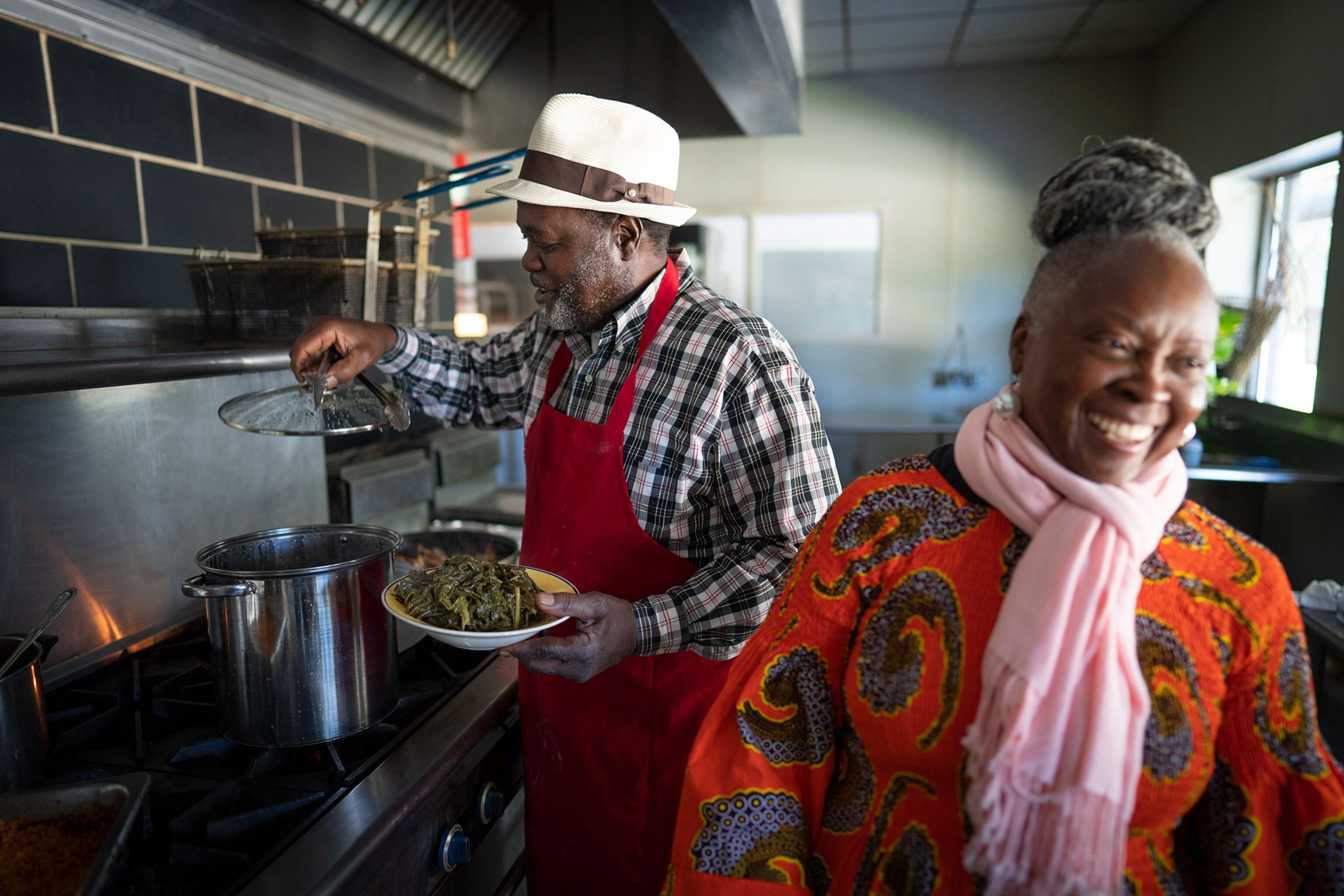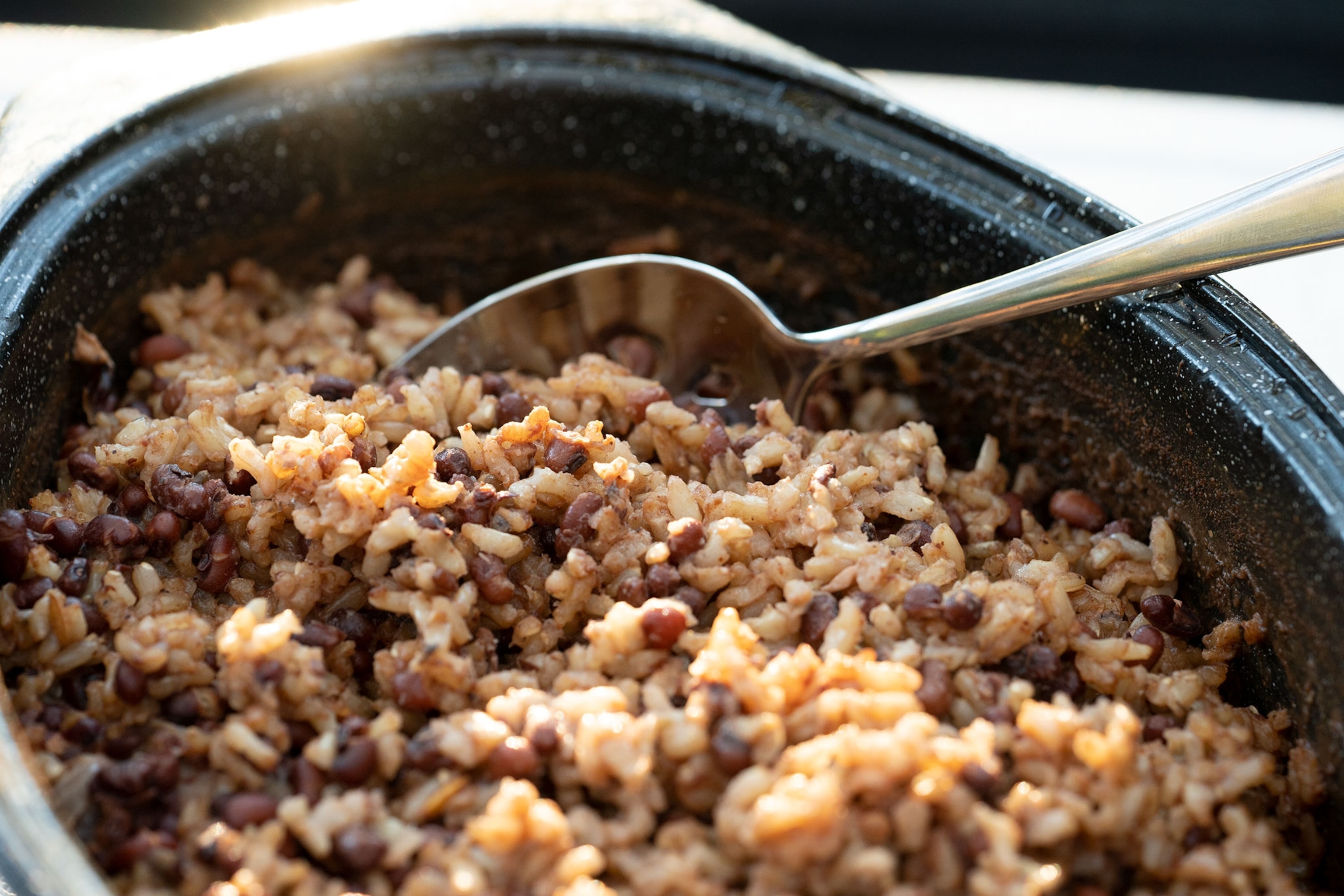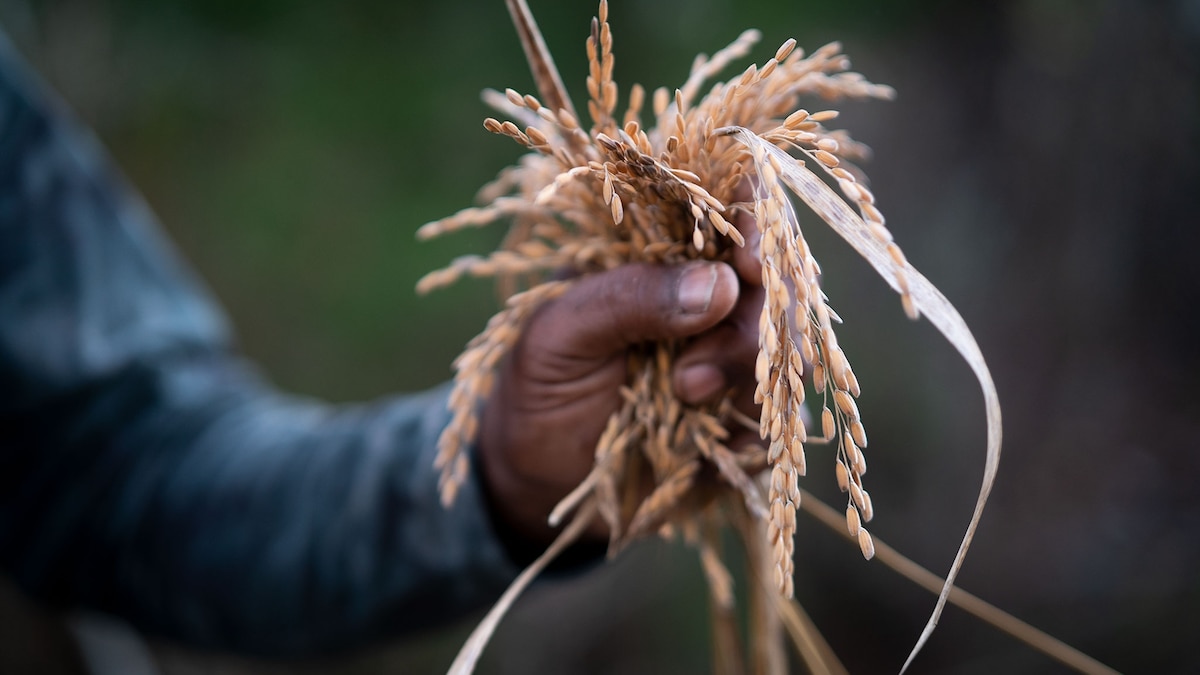Today, at the behest of his grandmother, he’s taken over the family farm in Brunswick, Georgia. He tours us past his hen-of-the-woods mushrooms, the old truck tires that serve as sweet potato planters, and the vast hibiscus plants he uses to make teas. He prepares exquisitely simple black beans (served with spring greens and pickled cucumbers or wrapped in a tortilla) and collard greens (slow-cooked—never boiled—for 45 minutes with red pepper, white onion, and vinegar). Collard greens are another New Year’s tradition (see recipe below). In Gullah Geechee culture, leafy greens and cabbage symbolize money and eating this beloved dish on New Year’s Day will bring prosperity to you and your family in the coming year.

For 15 years, owner Bill Green and his wife, Sará, have served up countless meals at Gullah Grub on St. Helena Island. Photographs By David McLain
On St. Helena Island in South Carolina sits the Gullah Grub Restaurant, owned and run by the ever-ebullient Gullah chef Bill Green who welcomes us to the community kitchen he uses to prepare 500 meals per week, mostly for kids in need. Wearing a plaid shirt, red apron, and broad-rimmed white hat, and sporting a gray-flecked beard, he shows us how to make Stir-Fried Cabbage and Beets and Red Cracked Rice. “If you’re smiling or laughing, that’s going to come out in the food. All you have to do is look at a man to know if his food is good or bad,” he says. In Bill’s case, his smile turns out to be deliciously prescient, because his food couldn’t be better.
Keys to longevity
His spirit is emblematic of the Gullah Geechee sense of community. As in the five original blue zones, social interaction is a key part of longevity. In Okinawa, tightknit circles of lifelong friends are called moai; in Sardinia, Ikaria, and Nicoya, families live in multigenerational homes, grandkids and grandparents living together, side-by-side. Likewise, in the Low Country, community is everything to the Gullah Geechee, and along with plant-based foods, their traditions of togetherness, shared Sunday suppers, and helping those in need may just be the key to unlocking longevity.
Hoppin’ John With Carolina Gold Rice and Sapelo Red Peas

Photograph By David McLain
Ingredients
• 1 cup Sapelo red peas
• 1 teaspoon salt
• ½ teaspoon freshly ground black pepper
• 1 teaspoon smoked paprika
• 3 cups water
• 2 cups Carolina Gold rice
1. Preheat the oven to 350°F.
2. In a large pot, combine the peas, salt, pepper, and paprika. Add the water and bring to a boil.
3. Reduce the heat to low and simmer for 30 minutes.
4. Put the rice in a 9-by-13-inch baking dish, and pour the pea mixture over the top. Cover the baking dish with aluminum foil and bake for 30 minutes.
5. Serve hot.
Carolina Gold rice is a unique heirloom grain that’s unlike the supermarket rice most of us are used to. A West African strain, it was first grown, cultivated, and cooked on American soil by enslaved peoples on plantations. In the 19th century, it became the dominant rice in the U.S. market, only to all but completely disappear after the Great Depression. Though you couldn’t find it on grocery store shelves for decades, it was legendary in the Low Country for its unique starchiness and earthy, nutty flavor. Thanks to a handful of industrious growers like Rollen Chalmers who are reviving such heirloom grains, you can now find Carolina Gold rice again on grocery store shelves and online.








